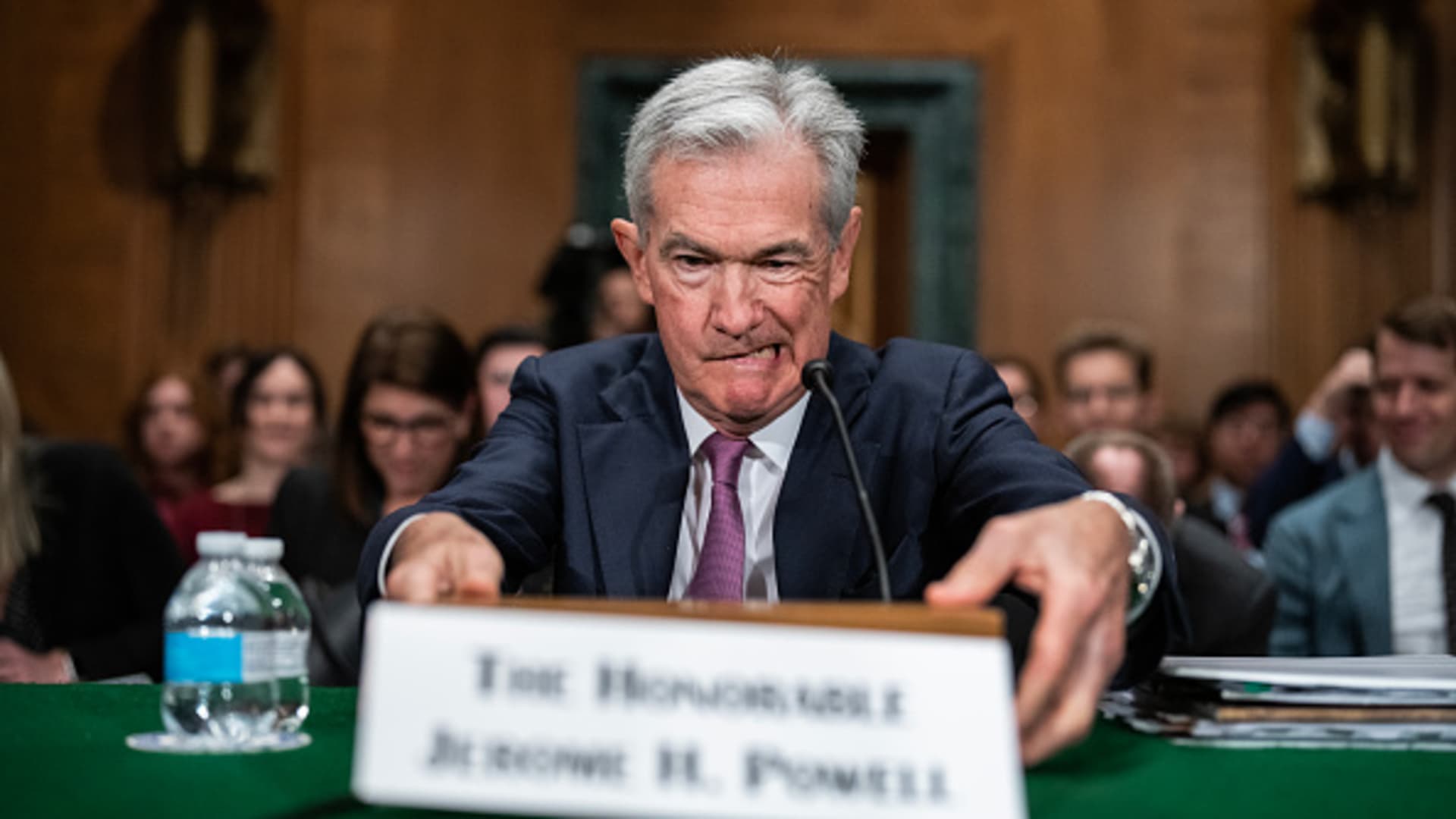New rules expected to require that banks keep more capital almost certainly won’t apply to smaller institutions, Federal Reserve Chairman Jerome Powell said Thursday.
Addressing concerns over proposals to tighten the reins on bigger banks, Powell told members of the Senate Banking Committee that the rules are still in draft stage.
At the same time, he also raised concerns about what impact higher capital requirements would have on lending.
“More capital means more stable banks and stronger banks, but there’s also a trade-off there,” he said in the second day of his semiannual testimony on monetary policy. “You’ve got to make a judgment about where you draw that line.”
In Powell’s understanding, banks below $100 billion in assets won’t be impacted by any new requirements. That provided some relief for Republican lawmakers who questioned whether the changes were necessary, as Powell faced multiple questions about the future of regulation and supervision. If that’s the case, the new rules would impact the top 25 or so banks in the U.S.
The questions, and the move to re-examine regulations, follow the March tumult in the industry, in which Silicon Valley Bank and two other large regionals were shuttered following deposit runs.
Lawmakers and Biden administration regulators have been pushing for a return to more stringent requirements after larger regionals were given a break in changes made in 2018.
In separate testimony Thursday, FDIC Chair Martin Gruenberg said the upcoming rules could apply so-called Basel III international standards to banks in the $100 billion to $250 billion asset range. The changes are not expected to be applied until sometime in 2024. Michael Barr, the Fed’s vice chair for supervision, has said they likely will take years to implement fully.
“The capital requirements will be very, very skewed to the eight largest banks,” Powell said. “There may be some capital increases for other banks. None of this should affect banks under $100 billion.”
Even with the exemption for smaller institutions, the looming changes represent an adjustment in thinking that Powell previously had supported, specifically that regulations should be tailored for both small- and mid-sized banks. Gruenberg’s comments, for instance, “support our view that banking regulators are biased toward higher capital levels,” Raymond James’ Washington policy analyst Ed Mills said in a client note.
The American Bankers Association criticized the move toward increase requirements that have been reported to be 20% higher.
“We have long believed that regulation should be tailored to a bank’s risk and business model,” ABA president Rob Nichols said in a statement. “Arbitrary asset thresholds and changes not justified by rigorous data and evidence are a mistake that will only make it harder for banks of all sizes to meet the needs of their customers, clients and communities while driving financial activity to less-regulated nonbanks.”
For his part, Powell faced little in the way of hostile questioning despite concerns raised over the SVB failure.
He did face some grilling from Sen. Elizabeth Warren (D-Mass.), a frequent critic who charged Thursday that Powell is “ultimately responsible for the team of supervisors who fell down on the job” when SVB failed.
Powell replied that the Fed “learned some lessons” from the episode.
“The main responsibility I take is to learn the right lessons from this and to undertake to address them so we don’t have a situation like this where we had unexpectedly a large bank fail and spread contagion into the banking system. That’s not supposed to happen, and we need to take appropriate steps to make sure it doesn’t happen again,” he said.
